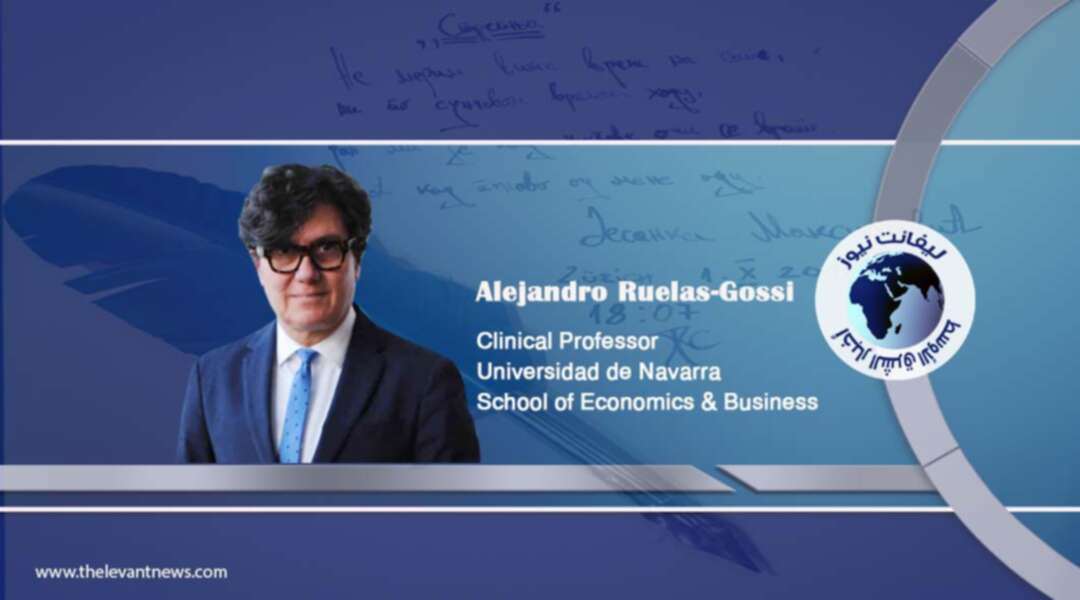-
THE PANDORA PAPERS, AN ANTHROPOLOGICAL PERSPECTIVE

This not the first time the world is informed of scandals like this one. And also we can be certain that it will not be the last one.
Some years ago, it was the Panama papers. Same thing.
Every time something like this happens, onlookers become misanthropists.
But as some would argue, stealing is an issue of opportunity. “Opportunity makes the thief”. It is quite interesting to see that the Crime Science Journal, back in 1976, did not consider opportunity as a cause, but 22 years later they did.
However, I do not think that is accurate. That would suggest then, than taking the “opportunity” out of the equation, would solve the issue of crime. And that has not happened. If we consider human beings as part of nature, we can then say – as one of the principles of Chaos Theory states – “Life will find its way”. Human beings – as Descartes stated in his Discourse in Method (1637) – exist because they think. And that thinking will always produce new – and more sophisticated – opportunities for criminal behavior.
It seems it is the human being who create the opportunities.
Accordingly, I would like to address this issue of Pandora papers from a quite different perspective.
Getting deep at the leaks from 14 sources, and the work of more than 600 journalists, we find a very interesting common denominator in the properties acquired by this new scheme. Practically all of them were in countries with a clear market economy: capitalism. It is clear than those countries have remained more stable, and the wealthy cadre of the world feels more “secure” in those countries.
I remember, some years ago, in a meeting in Amman, with the CEO of a private equity fund based in Jordan, and one of the top business men from Irak. When I was introduced, it was elicited that I lived in Miami, then, the gentleman from Bagdad told me very proud: “my family too!, in Coconut Grove”. He felt more secure having his family living in the USA.
Why capitalistic countries – or at least with a clear flavor of market economy – are more stable? Let us go to the roots of the economic philosophy defined in the XVIII century by Adam Smith – who actually was not an economist, but a moralist – considered as the father of economics.
Some researchers talk of Smith as the “young” and the “old” one. Being a young moralist, his ultimate purpose was deployed in the title of his most influential work: “An inquiry into the nature and causes of the Wealth of Nations”. The old Smith, however, arrived – as many others have at an old age – to the conclusion of the innate selfishness of human beings. Not few of them have become misanthropic.
And from the political philosophy, we find Thomas Hobbes, with his Leviathan, where most of the modern political systems are based. “Man is the wolf of man”.
Clearly both economic and political philosophies share a deep pessimism in the human nature. Hobbes propose a third party: Leviathan.
Capitalistic economic systems acknowledge the self-interested desires of
each human being – indeed, that is what makes the system work.
As the economist Adam Smith argued almost three centuries ago, what makes societies function successfully is each participant’s innate egoism.
This philosophical distinction in the market driven economy system can be explained with the help of the Nash Equilibrium. Using the classic “prisoner’s
dilemma,” the mathematician John Nash (Nobel Prize in Economics, 1994)
showed that it is precisely the non-cooperation of parties that results in equilibrium. The possibility of getting a reduced sentence is so strong an incentive for the prisoner that betrayal of his partner in crime – the most selfish choice – becomes his best option.
Both self-interest (economic philosophy), and the Leviathan (political philosophy) are the basis of those markets where most of the acquired properties in the Pandora Papers, were made.
The system itself promotes – and actually it is a theoretical principle of an efficient market – opportunistic behavior, just like the one observed in the Pandora Papers.
It will always exist, but for sure, it will be more sophisticated.
The utopian optimism of a world without this kind of behavior resides in people with a poor – or an absence – of a historical perspective.
ABOUT THE AUTHOR:
Alejandro Ruelas-Gossi is a Clinical Professor of Strategy at the University of Navarra. School of Economics and Business. He served as Professor at the University of Miami Business School, and as a research professor at New York University Stern
School of Business Center of Globalization. He has consulted for a number of Fortune 500 companies including Sony, Microsoft, IBM, Boston Scientific, Abbot, Philips among others. Prior to going into academia, he was a senior executive at Cemex and Deere & Company. He also served for a number of years as the founding managing director of Orkestra, the Basque Institute of
Competitiveness, in Spain. He holds a PhD in Strategy from the University of North Carolina-Chapel Hill, and a Master of Science, in the Management of Technology from the Massachusetts Institute of Technology MIT.

PhD: Alejandro Ruelas-Gossi, Clinical Professor Universidad de Navarra School of Economics & Business
You May Also Like
Popular Posts
Caricature
BENEFIT Sponsors BuildHer...
- April 23, 2025
BENEFIT, the Kingdom’s innovator and leading company in Fintech and electronic financial transactions service, has sponsored the BuildHer CityHack 2025 Hackathon, a two-day event spearheaded by the College of Engineering and Technology at the Royal University for Women (RUW).
Aimed at secondary school students, the event brought together a distinguished group of academic professionals and technology experts to mentor and inspire young participants.
More than 100 high school students from across the Kingdom of Bahrain took part in the hackathon, which featured an intensive programme of training workshops and hands-on sessions. These activities were tailored to enhance participants’ critical thinking, collaborative problem-solving, and team-building capabilities, while also encouraging the development of practical and sustainable solutions to contemporary challenges using modern technological tools.
BENEFIT’s Chief Executive Mr. Abdulwahed AlJanahi, commented: “Our support for this educational hackathon reflects our long-term strategic vision to nurture the talents of emerging national youth and empower the next generation of accomplished female leaders in technology. By fostering creativity and innovation, we aim to contribute meaningfully to Bahrain’s comprehensive development goals and align with the aspirations outlined in the Kingdom’s Vision 2030—an ambition in which BENEFIT plays a central role.”
Professor Riyadh Yousif Hamzah, President of the Royal University for Women, commented: “This initiative reflects our commitment to advancing women in STEM fields. We're cultivating a generation of creative, solution-driven female leaders who will drive national development. Our partnership with BENEFIT exemplifies the powerful synergy between academia and private sector in supporting educational innovation.”
Hanan Abdulla Hasan, Senior Manager, PR & Communication at BENEFIT, said: “We are honoured to collaborate with RUW in supporting this remarkable technology-focused event. It highlights our commitment to social responsibility, and our ongoing efforts to enhance the digital and innovation capabilities of young Bahraini women and foster their ability to harness technological tools in the service of a smarter, more sustainable future.”
For his part, Dr. Humam ElAgha, Acting Dean of the College of Engineering and Technology at the University, said: “BuildHer CityHack 2025 embodies our hands-on approach to education. By tackling real-world problems through creative thinking and sustainable solutions, we're preparing women to thrive in the knowledge economy – a cornerstone of the University's vision.”
opinion
Report
ads
Newsletter
Subscribe to our mailing list to get the new updates!






















